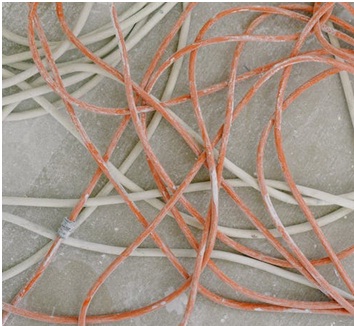Frequently Asked Questions about 6 AWG Wire (and Wire in General)
5th Jan 2021

Here at EWCS Wire, you’re going to come across a lot of information in only a very short amount of time. It’s going to be overwhelming unless you have a practiced understanding of what all of the terms mean and how our wires and cables are used.
Here are some questions you might cook up while you’re looking through our many different specialized products. There are brief answers to each of them, but remember, you can always check our blog for more information or give us a call directly to learn more.
- What does 6 AWG wire even mean?
AWG stands for American Wire Gauge, and it is one of the ways to measure the cross sectional width of a wire, which means it is also thereby tied to cross sectional area. Very simply, you can think of wire gauge as a way to measure the thickness of a wire, though more goes into it than that. Broadly, the gauge will impact how well a wire or cable can carry a current, and how much resistance it will offer. One more thing to know is that the measurement is inversely proportional, so a smaller number means a wider wire, and a larger number means a smaller wire.
2. Is copper wire or aluminum wire better?
Neither is really better than the other, and they each have different strengths. Consider this: although 6 AWG wire in copper will have better conductivity than 6 AWG wire in aluminum, aluminum is lighter and more affordable. Aluminum is also very soft and ductile.
3. If copper is
a better conductor, how come some cables and wires are aluminum?
As stated above, the conductivity of copper is slightly better than aluminum. However, copper is heavier and more expensive than aluminum.
4. Do I really
need to use an instrumentation cable?
You probably should if you’re going to be wiring an alarm or security system, especially if there will be a lot of EMI (electromagnetic interference) present. That can adversely affect the signal carried by the wires, and instrumentation cables, especially shielded ones, are uniquely equipped to handle these conditions.
5. What is tray cable?
Tray cable is cable that is designed to be laid in trays as opposed to conduits. Because trays are open and easier to access, laying cables in trays is much easier and cost effective than drawing cable through conduits. Trays also allow heat to dissipate better than conduits, so this makes them desirable as well. In short, tray cable is cable that is designed to be used with conduits.
6. Is high strand count or low strand count better?
Neither is better than the other (necessarily) but the reason that some cables are made with a particularly high strand count, like marine battery cable and welding cable, is to guarantee a higher degree of flexibility. These cables are used in situations where flexibility is extremely important, and so they have some of the highest strand counts of any electrical cable.
7. What does electrical cable or wire need to be resistant to?
That depends on the location. For example, marine battery cable is made up of individually tinned copper conductors so that it withstands the influences of saltwater and corrosion better. Welding cable is often made with insulation that is resistant to gasoline and oil. Photovoltaic cables are made with insulation that is not only weather resistant but also resistant to ultraviolet radiation. In reality, there are many things that electrical cable and wire should be resistant to, given their applications - call us for more details on the matter.
8. Can you use welding cable for PV applications?
Actually, some welding cables can be used as photovoltaic wire (AKA PV wire) for use in solar arrays or for inverter hookups. They have to be manufactured to a specific degree of tolerance in order to be so used, so if you have any questions about specifics, contact our customer service team.
9. What do all of those codes mean?
The short answer is that all of those codes, like XLPE and THHN, all mean different things. You can learn more about them in a recent blog we published on the matter. If you can’t find the answer you’re looking on the product page, either call us or check out this blog on wire labeling to learn more.
Do you still have questions, or have your questions not been answered thoroughly enough? Give us a call at 800-262-1598 if you want to learn more or have additional concerns. We love to hear from our clients, so call us, or email us at sales@ewcswire.com today!
